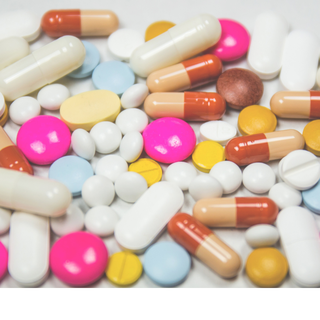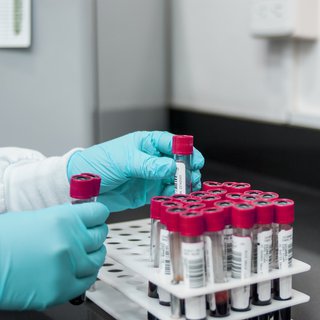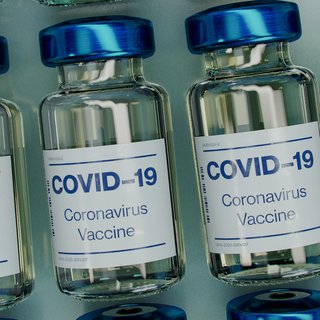Antivirals and monoclonal antibodies – what’s the difference?
We’ve been hearing about new treatments that the UK have bought to tackle Covid. Some drugs have already been approved for use in the UK, some are yet to be – but the hope is that they will help those most at risk of severe Covid.
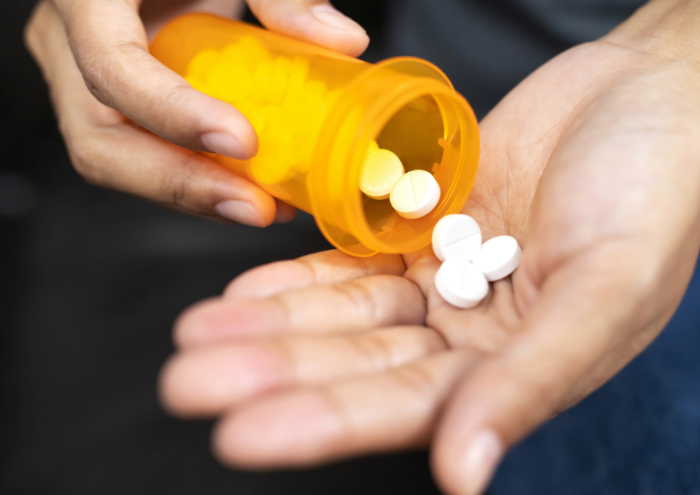
Over the last weeks and months, we’ve been hearing about new treatments that the UK have bought to tackle Covid. Some have already been licensed by the Medicines and Healthcare products Regulatory Agency (MHRA) – the organisation that approves new drugs for use in the UK. Once these drugs are approved, they can be used if the NHS decides to use them. Some drugs are yet to be approved, but the hope is that they will help those most at risk of severe Covid.
There are two main types of drugs: antivirals and monoclonal antibody treatments. They each work differently and are given at slightly different stages of infection. In this blog, we take you through their differences and tell you more about the science behind the treatment.
An easy way to spot the difference between the two types of treatment is by looking at their names. Anything ending with ‘vir’ is an antiviral and anything ending with ‘ab’ is an antibody-based treatment.
For example, Ronapreve is made up of two drugs called casirivimab and imdevimab. You can see that they both end with ‘ab’ telling you the treatment is antibody based. In contrast, you can see that molnupiravir and ritonavir plus PF-07321332 are antiviral treatments as they both end in ‘vir’.
Antivirals and monoclonal antibodies use different mechanisms to destroy Covid.
Monoclonal antibodies
Monoclonal antibodies give your body the Covid antibodies it needs to fight the illness. These antibodies will stick to the surface of the Covid virus and stop Covid from getting inside our cells and making us ill. They act as a distress signal and signal to other cells to come and help destroy the virus.
Antivirals work slightly differently. Ritonavir, PF-07321332 and molnupiravir interfere with the way the Covid virus replicates and reproduces.
On their own, viruses can’t make more versions of themselves. What makes them effective, is their ability to enter our own cells and hijack a toolbox in our cells that allows them to increase their numbers. Antivirals stop this from happening.
Each antiviral targets slightly different parts of this process but they all have the aim of reducing the number of viral particles produced which reduces the risk of serious disease. We expect both of these treatments to be good options for people with blood cancer and results from clinical trials have been promising.
Read more on our website about antibody and antiviral treatments for Covid for people with blood cancer.
When can I receive these treatments?
These treatments are used at slightly different times and in different settings. The monoclonal antibody treatment, Ronapreve, has been licensed by the MHRA and has been shown to work in clinical trials in three different settings.
The first setting acts as a preventative for people who are at high risk of severe Covid, the second is after someone has been exposed to Covid, and the third is when people are in hospital and are found to have no antibodies fighting the virus.
At the moment, it is only being used on the NHS for people who are in hospital and everyone we’ve heard from has been able to access it. We’re unsure why it’s only used in hospital at the moment, but we’re seeking answers and will update you when we know more.
If you have more questions, you can always call our support line on 0808 2080 888.
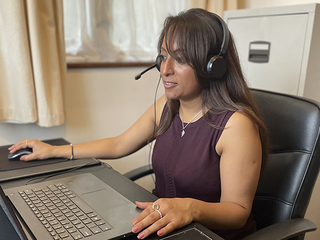
Worried about anything or have questions?
If you need someone to talk to, please don't hesitate to contact our Support Service by phone or email.
The Government has ordered 480,000 doses of molnupiravir and 250,000 doses of ritonavir plus PF-07321332. At the moment, only molnupiravir has been licensed for use by the MHRA. Ritonavir plus PF-07321332 has not been approved yet, but the UK has pre-ordered stock, and we will update you as soon as we know more.
Molnupiravir is given as soon as someone gets a positive Covid test. It’s a tablet you can take at home.
At the moment, we’re unsure how this will work in practice, or how someone will identify themselves to get access to the drug. However, we’re working on getting answers for this. If ritonavir plus PF-07321332 does get approved, it will likely be given in a similar way.
What does the research say?
Both monoclonal antibody treatments and antivirals have some clear benefit to people with blood cancer.
Ronapreve - clinical trial
There have been several trials of Ronapreve in different settings. COV-20145 was a clinical trial that looked at the effect of Ronapreve in people who had Covid if the treatment was given within three days of a positive test.
The trial found Ronapreve significantly reduced viral load and reduced time required to recover from Covid compared to people who weren’t given the drug, but this did not include people who were at high risk of developing severe Covid infection.
The treatment has also been trialled in people with at least one risk factor for severe infection. Those who had Covid but weren’t hospitalised were included in the trial and the team found that Ronapreve reduced the risk of hospitalisation or death by 70% in this group.
AstraZeneca - clinical trial
There’s another antibody treatment made by AstraZeneca called AZD7442 (made up of two antibodies tixagevimab and cilgavimab) that is currently being reviewed by the MHRA. Results have shown that this preventative treatment can reduce the risk of developing symptomatic Covid by 83%. This was six months after participants had received one dose of the treatment, showing that this treatment is potentially long lasting.
More than 75% of participants had health issues which put them at higher risk of Covid infection and include conditions that have been reported to cause a reduced immune response to vaccination. We hope to see this drug licensed for use soon.
AZD7442 has also been trialled as a treatment in people who caught Covid and were at mild to moderate risk of developing severe disease. In this setting, when the treatment was given within three days of symptom onset, it reduced the risk of developing severe Covid, or death, by 88%.
A recent clinical trial was carried out of ritonavir, plus another investigational antiviral called PF-07321332, in people who are at high risk of catching Covid. In this trial, run by Pfizer, the drug combination decreased the risk of hospitalisation or death from Covid by 89% if it was given within three days of the onset of symptoms.
The MOVe-OUT trial looked at the benefit of giving molnupiravir within five days of Covid symptom onset. In the trial, the drug decreased the risk of hospitalisation or death by 50% in people, including those with cancer, who were at high-risk of severe Covid infection.
You can read more on our website about vaccine efficacy and the need for alternative preventive treatments for people with blood cancer.
Some of these drugs are already benefiting people with blood cancer and we’re hopeful that more will become available as we move into winter. Even with these treatments, it’s vital that people with blood cancer get their Covid vaccinations, as we hope these will provide at least some protection for people with blood cancer. We will of course keep you updated as and when we know more.

